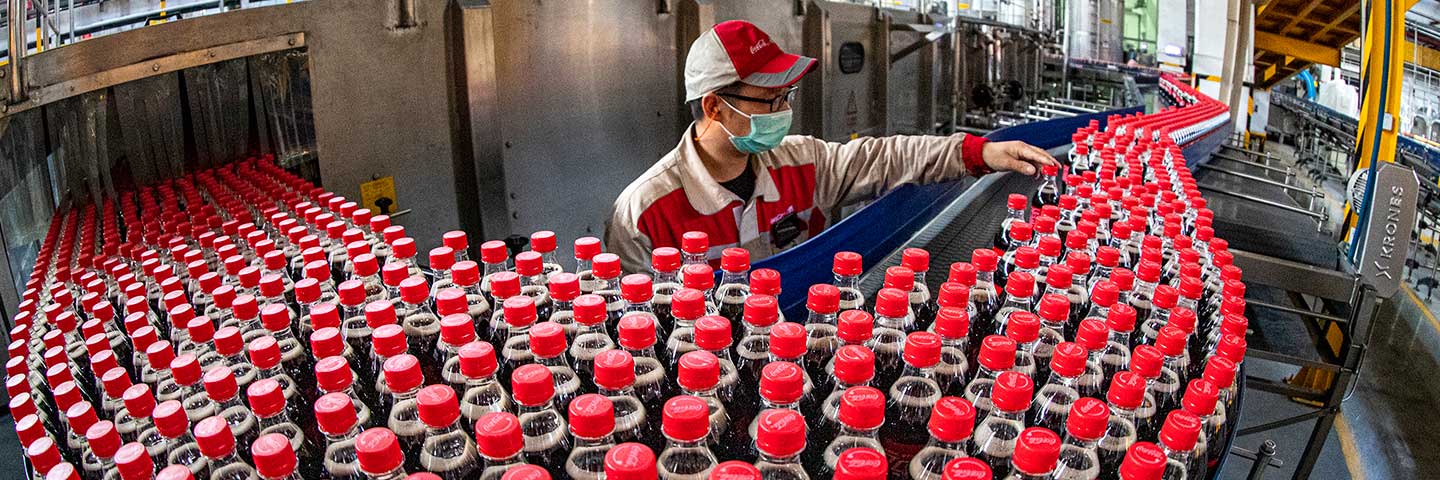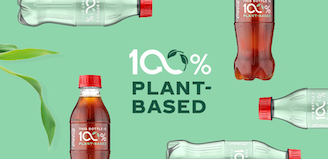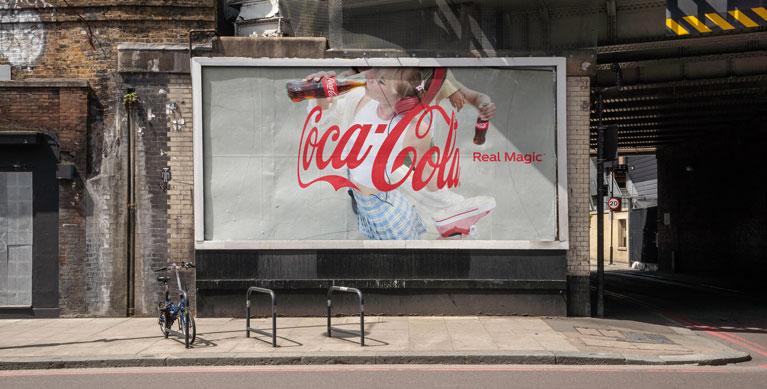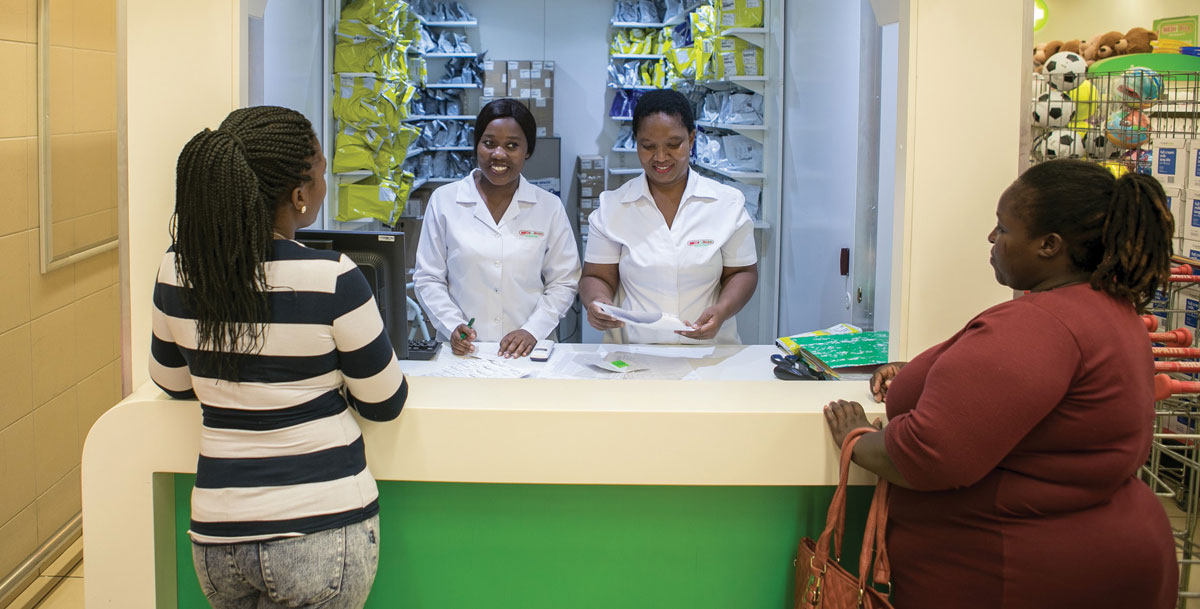
Coca‑Cola CEO: ‘We Continue to Focus on Winning as the World Reopens’
10-23-2020
While Coca‑Cola continues to face challenges in markets bearing the economic brunt of coronavirus lockdowns – especially in those where most of its business comes from restaurants and other away-from-home channels hit hardest by the pandemic – Chairman and CEO James Quincey is encouraged by the company’s progress in the third quarter and remains confident in its plans to emerge stronger.
“Together with our bottlers, we continue to focus on winning as the world reopens,” Quincey said Oct. 22 during a call with analysts.
Global volume trends continue to improve, from a 25% decline in April to low-single digit drops since September. Away-from-home outlets, which represent roughly half of Coke’s business globally, are showing signs of stabilization. Grocery, convenience retail and e-commerce sales were up in the quarter, thanks to the Coca‑Cola system’s efforts to prioritize fast-moving SKUs and pivot supply chains based on shifts in shopper behavior.
In North America, for example, e-commerce sales have more than doubled year to date, and the company is partnering with restaurants and aggregators to boost drink sales via mobile apps and online ordering platforms.
Trademark Coke volume increased in the third quarter and posted share gains in 80% of the company’s top markets globally. Local brands like Simply and fairlife in the U.S. and Thums Up in India also delivered growth in the quarter.
A Catalyst for Change
While COVID-19 has served as a “catalyst for change,” Quincey said the seeds for the company’s strategic transformation were planted well before the crisis hit.
“We’ve been challenging legacy ways of doing business,” he said, “and the pandemic helped us realize we could be bolder in our efforts.”
A new, networked operating model better positions the Coca‑Cola system to pursue its Beverages for Life strategy and accelerate plans to streamline its global beverage portfolio, which is being pared down from 400-plus master brands to approximately 200 with the greatest potential for growth and scale.
A more disciplined approach to innovation and marketing efficiency and effectiveness will fuel reinvestment into these priority brands, Quincey noted, and a stepped-up focus on revenue growth management and commercial execution will ensure more consumer-preferred beverages are offered at the right prices in the right channels for the right occasions.
“We’re focusing on bigger, more scalable bets,” Quincey said, adding that innovation will manifest via trademark extensions like Coke Energy, new brands like AHA flavored sparkling water and category-crossing breakthroughs like Topo Chico Hard Seltzer. “We will continue to experiment on a local level, and our new approach allows us to move faster to find and scale our best initiatives. We have a robust pipeline in the works for next year and expect innovation to continue to contribute meaningfully to our growth going forward.”
Recovery will not be a “straight line” around the world, Quincey cautioned, as impacts vary by country based on the degree of lockdown restrictions. The company continues to navigate through uncertainties of the pandemic, he said, and is prepared for setbacks potentially triggered by colder weather in the Northern Hemisphere and other factors.
“It’s important to remember that the world is in a fragile state,” Quincey said. “We are heading toward a phase where the world is adapting to a new way of life with COVID. The progress we’ve made on accelerating our strategic transformation will give us the focus and flexibility to manage our business and execute with excellence today, and to set ourselves up for better results in the long term.”
Forward-Looking Statements
This article may contain statements, estimates or projections that constitute “forward-looking statements” as defined under U.S. federal securities laws. Generally, the words “believe,” “expect,” “intend,” “estimate,” “anticipate,” “project,” “will” and similar expressions identify forward-looking statements, which generally are not historical in nature. Forward-looking statements are subject to certain risks and uncertainties that could cause The Coca‑Cola Company’s actual results to differ materially from its historical experience and our present expectations or projections. These risks include, but are not limited to, the negative impacts of the novel coronavirus (COVID-19) pandemic on our business; obesity and other health-related concerns; evolving consumer product and shopping preferences; increased competition; water scarcity and poor quality; increased demand for food products and decreased agricultural productivity; product safety and quality concerns; perceived negative health consequences of certain ingredients, such as non-nutritive sweeteners and biotechnology-derived substances, and of other substances present in our beverage products or packaging materials; an inability to be successful in our innovation activities; an inability to protect our information systems against service interruption, misappropriation of data or breaches of security; failure to comply with personal data protection and privacy laws; failure to digitize the Coca‑Cola system; changes in the retail landscape or the loss of key retail or foodservice customers; an inability to expand operations in emerging and developing markets; fluctuations in foreign currency exchange rates; interest rate increases; an inability to maintain good relationships with our bottling partners; a deterioration in our bottling partners’ financial condition; increases in income tax rates, changes in income tax laws or unfavorable resolution of tax matters; increased or new indirect taxes in the United States and throughout the world; an inability to successfully manage the possible negative consequences of our productivity initiatives; an inability to attract or retain a highly skilled and diverse workforce; increased cost, disruption of supply or shortage of energy or fuel; increased cost, disruption of supply or shortage of ingredients, other raw materials, packaging materials, aluminum cans and other containers; increasing concerns about the environmental impact of plastic bottles and other plastic packaging materials; changes in laws and regulations relating to beverage containers and packaging; significant additional labeling or warning requirements or limitations on the marketing or sale of our products; unfavorable general economic conditions in the United States; unfavorable economic and political conditions in international markets; litigation or legal proceedings; conducting business in markets with high-risk legal compliance environments; failure by our third-party service providers and business partners to satisfactorily fulfill their commitments and responsibilities; failure to adequately protect, or disputes relating to, trademarks, formulae and other intellectual property rights; adverse weather conditions; climate change and legal or regulatory responses thereto; damage to our brand image, corporate reputation and social license to operate from negative publicity, whether or not warranted, concerning product safety or quality, workplace and human rights, obesity or other issues; changes in, or failure to comply with, the laws and regulations applicable to our products or our business operations; changes in accounting standards; an inability to achieve our overall long-term growth objectives; deterioration of global credit market conditions; default by or failure of one or more of our counterparty financial institutions; an inability to renew collective bargaining agreements on satisfactory terms, or we or our bottling partners experience strikes, work stoppages or labor unrest; future impairment charges; multi-employer pension plan withdrawal liabilities in the future; an inability to successfully integrate and manage our company-owned or -controlled bottling operations or other acquired businesses or brands; an inability to successfully manage our refranchising activities; failure to realize a significant portion of the anticipated benefits of our strategic relationship with Monster Beverage Corporation; global or regional catastrophic events; and other risks discussed in our filings with the SEC, including our Annual Report on Form 10-K for the year ended December 31, 2019 and our subsequently filed Quarterly Reports on Form 10-Q, which filings are available from the SEC. You should not place undue reliance on forward-looking statements, which speak only at the date they are made. We undertake no obligation to publicly update or revise any forward-looking statements.


